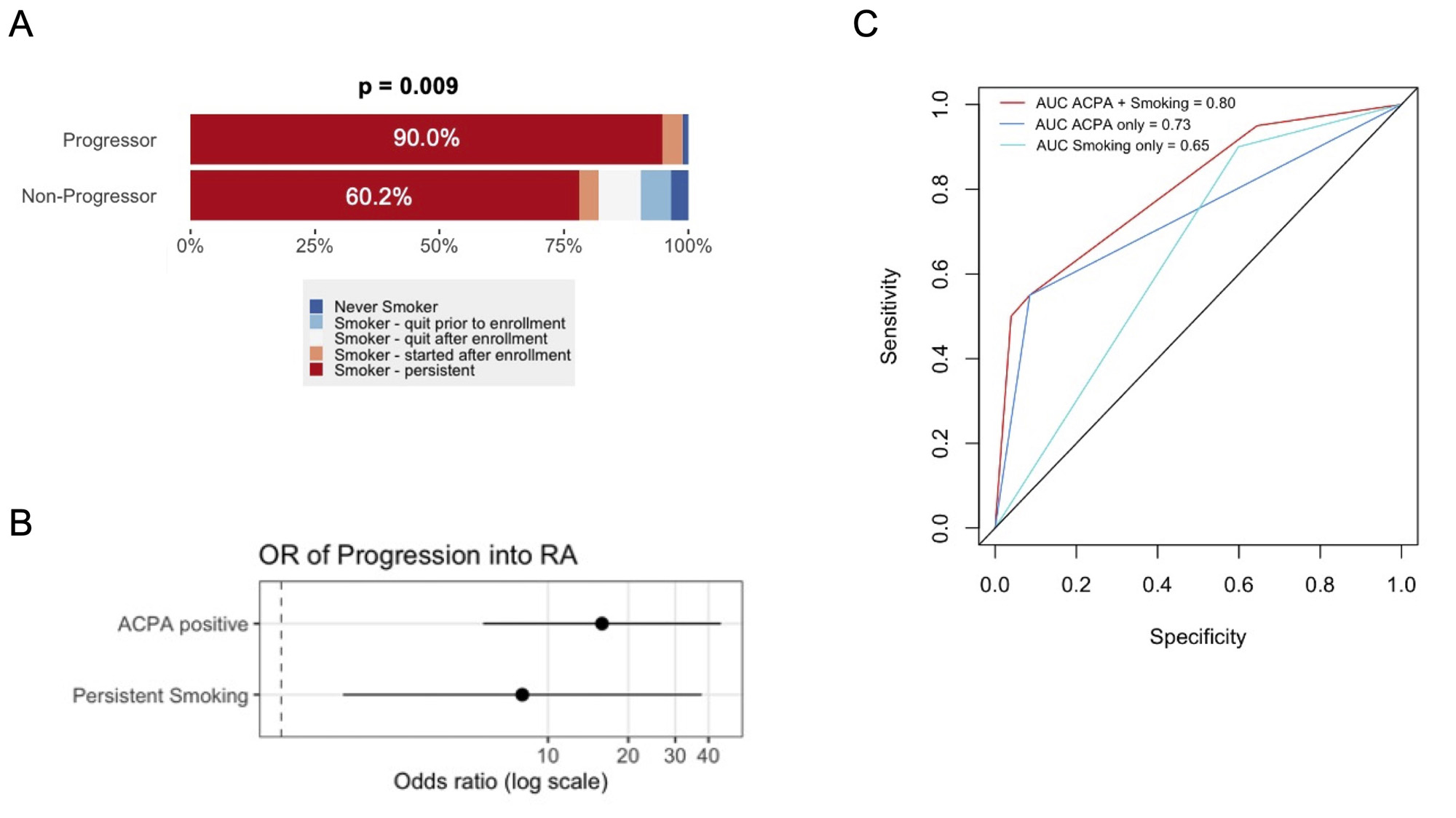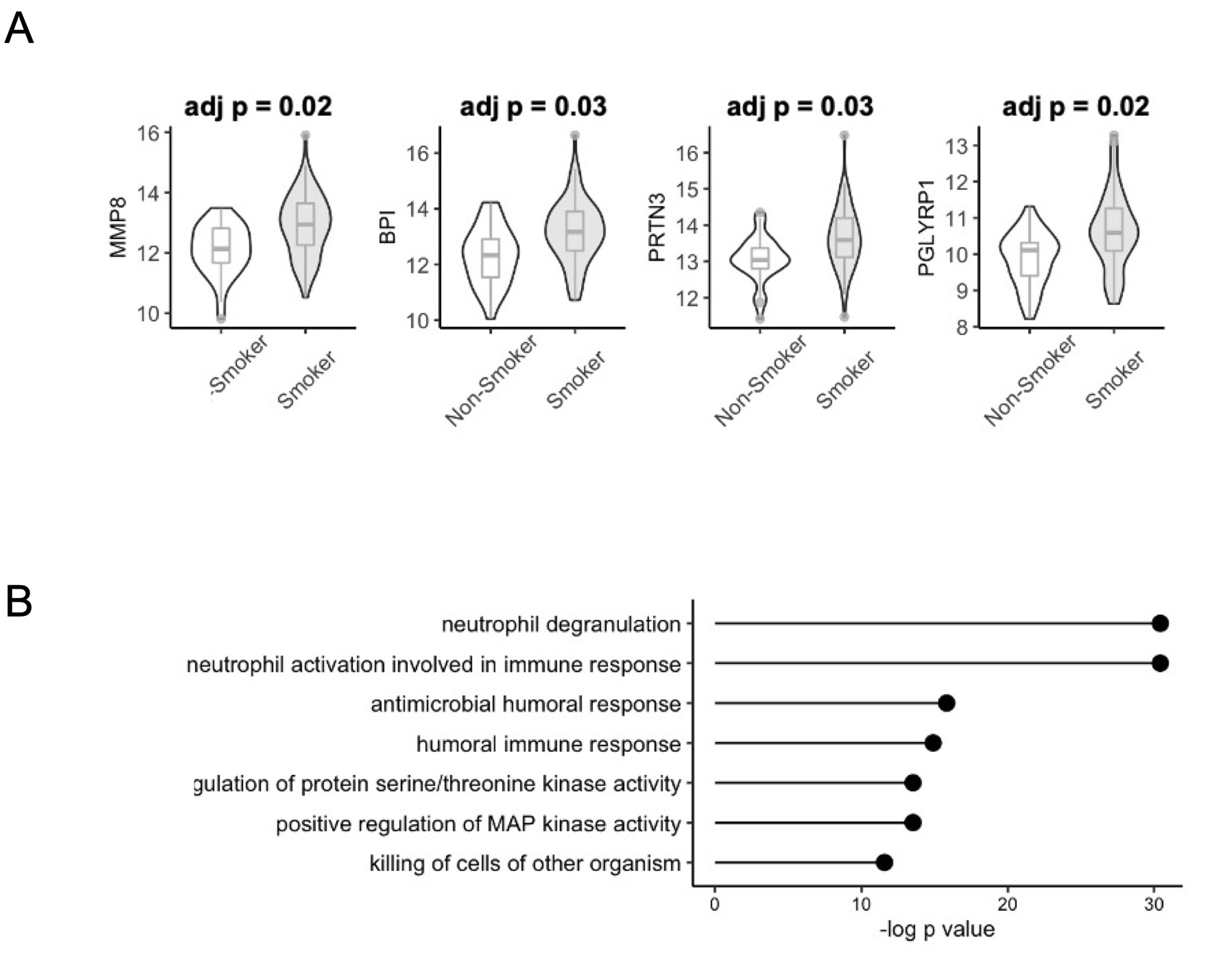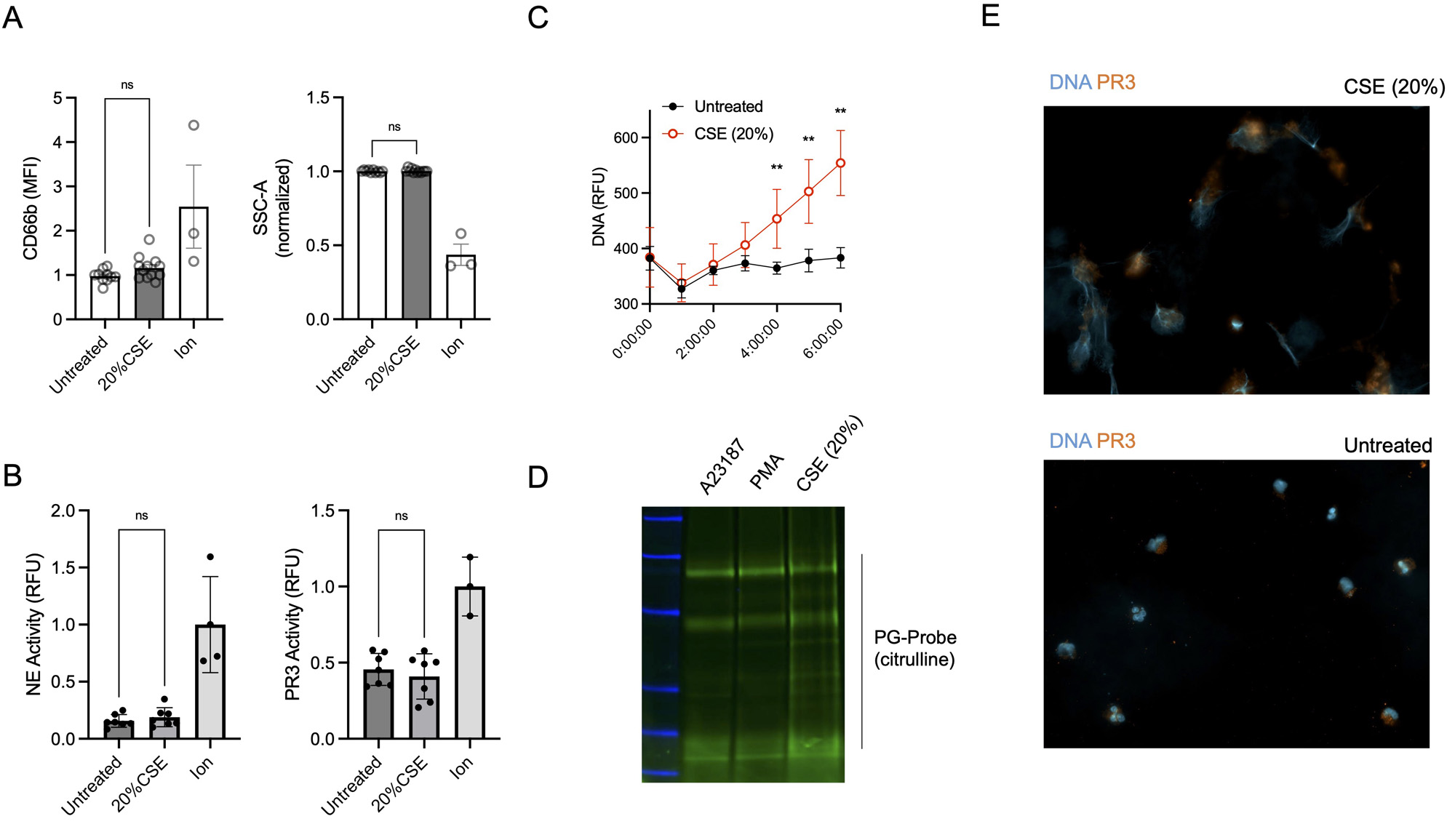Session Information
Session Type: Poster Session C
Session Time: 9:00AM-11:00AM
Background/Purpose: Cigarette smoking (CS) is a major environmental risk factor for the development of Rheumatoid Arthritis (RA), and is associated with the development of RA autoantibodies, such as anti-citrullinated protein antibodies (ACPA) and rheumatoid factor (RF). However, it remains unclear what role(s) smoking has in the pathogenesis of RA, particularly during the pre-clinical stage. Using clinical, proteomic and in-vitro approaches, we sought to better understand the relationship between CS and RA onset in a large, prospective cohort of unaffected First-Degree Relatives (FDR) of RA patients, some of whom progressed to develop RA (Progressors).
Methods: Over the past 15 years, we established a longitudinal cohort of FDR of RA patients with a view to detect and predict incident RA. At baseline, and at each subsequent study visit, a CS questionnaire was administered, which included questions regarding past and current CS, and CS intensity. Based on these data, longitudinal CS patterns were extracted and related to demographics and autoantibody profiles. A previously published (32770634) discovery serum proteomic dataset (SOMAscan, 1288 proteins) was analyzed to explore the potential effect of smoking on the proteome of FDR. Neutrophils from healthy donors were stimulated with CS extract (CSE) and analyzed by flow cytometry, enzymatic profiling, immunofluorescence, protein citrullination and extracellular DNA release (SYTOX green).
Results: In total, we were able to analyze CS patterns on 569 FDR, 19 of whom were Progressors. At baseline, current (79.6%) and ever (85.0%) CS rates were high in the study population, though neither was clearly associated with ACPA and/or RF seropositivity. Furthermore, baseline CS parameters did not predict future development of RA in the Progressors (n = 19). However, longitudinal CS patterns were strongly associated with Progression (Figure 1A, p = 0.009), with higher rates of persistent smoking in Progressors (90.0% vs 60.2%). In a logistic regression model, both persistent smoking (OR 8.0, 1.7 – 37.7) and ACPA positivity (15.9, 5.7 – 44.5) were independently associated with Progression (Figure 1B, C). Proteomic analysis and pathway enrichment suggested an upregulation of neutrophil proteins (Figure 2A) and neutrophil degranulation (p=5.2E-18, Figure 2B) in active smokers. Neutrophils cultured in-vitro with CSE (20%) skewed neutrophils away from degranulation (Figure 3A, B) and toward neutrophil extracellular trap (NET) formation, leading to the release of neutrophil proteases, extracellular DNA and citrullinated proteins (Figure 3C, D, E).
Conclusion: We show that persistent CS rather than incident CS was associated with RA development in a cohort of at-risk FDR of RA patients. Serum proteomics suggested that neutrophils are activated in smokers and neutrophils treated with CSE release NETs, but do not degranulate. These data suggest a potential mechanism by which smoking may stimulate neutrophils to undergo NET formation, and release citrullinated antigens and inflammatory proteins, which may in turn increase the risk of progression to clinically detectable RA.
To cite this abstract in AMA style:
Maisha J, Meng X, El-Gabalawy H, O'Neil L. Persistent Cigarette Smoking Is Associated with Rheumatoid Arthritis Onset and Neutrophil Activation in a Prospective Study of At-risk First-Degree Relatives [abstract]. Arthritis Rheumatol. 2023; 75 (suppl 9). https://acrabstracts.org/abstract/persistent-cigarette-smoking-is-associated-with-rheumatoid-arthritis-onset-and-neutrophil-activation-in-a-prospective-study-of-at-risk-first-degree-relatives/. Accessed .« Back to ACR Convergence 2023
ACR Meeting Abstracts - https://acrabstracts.org/abstract/persistent-cigarette-smoking-is-associated-with-rheumatoid-arthritis-onset-and-neutrophil-activation-in-a-prospective-study-of-at-risk-first-degree-relatives/



